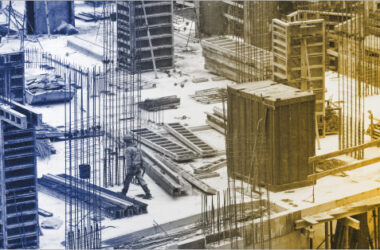In the construction industry, uncertainties and risks are unavoidable and projects often face unexpected setbacks that could have severe financial repercussions. To shield against these unforeseen losses, Contractor All Risk Insurance (CAR insurance, in short) has become popular in India. A Contractors All Risk Insurance Policy is specifically designed for construction projects to provide comprehensive coverage against various risks encountered during the construction process. In this article, we will explore what Contractor All Risk Insurance entails, its benefits, types of coverage for damages, exclusions and why it’s essential for contractors and stakeholders in the construction sector.
Understanding Contractors All Risk Insurance Policy
Contractor All Risk Insurance provides extensive coverage to contractors, builders and other parties involved in construction projects. The policy covers a range of risks associated with construction projects, including physical loss or property damage to the project site, third-party injury liability claims and damage to surrounding property caused by construction activities. A Contractor’s All Risk Policy is generally acquired by the main contractor or employer and protects all parties involved, such as subcontractors and suppliers, from potential financial losses due to unforeseen accidents or incidents on site.
In India, Contractor All Risk Insurance Policies are widely used for both small and large-scale construction projects. The scope of Contractor All Risk Insurance can be customised to meet specific project needs, offering flexibility for various types of construction works, from residential buildings and commercial properties to infrastructure projects like roads, bridges and dams.
Key Components of Contractor All Risk Insurance
Contractor All Risk Insurance policies typically consist of two main components, providing coverage that is more inclusive than standard property damage insurance:
a) Coverage for Damages to Materials
This part of the policy covers physical property damage or loss due to events such as fire, lightning, flood, landslides, collapse, human error and accidents on site. This section includes:
- Damage to the construction site and materials,
- Coverage for damages to machinery and equipment used on the site,
- Temporary buildings and infrastructure.
This coverage ensures that unforeseen incidents causing property damage or loss will be covered. It reduces the financial burden on contractors and stakeholders.
b) Coverage for Third-Party Injury, Loss, or Damage
This section protects the insured party against liability claims from third-party injury or property damage caused by construction activities. Construction projects often pose hazards to surrounding properties, passersby, and local communities. Examples include:
- Injury to individuals near the construction site,
- Damage to nearby structures, roads, or utilities,
- Legal expenses arising from third-party claims.
However, this coverage excludes injuries to employees or workmen of the contractor or principal, as well as damage to property under their custody or control. This component ensures financial support if a third-party claim is made, helping protect the reputation and financial stability of the construction company.
Coverage Provided by a Contractors All Risk Insurance Policy
A Contractor’s All Risk Policy covers a wide range of risks, including but not limited to:
- Fire, Explosion, and Lightning: Property damage caused by these events is covered, as they can cause substantial losses, especially in large-scale construction projects.
- Natural Disasters: Earthquakes, floods, storms, cyclones, landslides and other natural events are covered under a Contractor All Risk Policy. This is vital in India due to its varied geographical conditions.
- Theft or Burglary: Theft of materials, equipment, and machinery on-site are common issues in construction and CAR Insurance can provide protection against these losses.
- Malicious Acts and Vandalism: Deliberate property damage caused by external parties, such as vandalism or riots, is also covered.
- Faulty Design or Workmanship (with Extensions): While the policy excludes costs for rectifying defective materials or workmanship, it does provide coverage for damages to correctly executed items caused by such defects if they lead to an accident. Optional extensions can cover faulty design risks.
Most contractor all risk insurance policies are “all-risk,” meaning they cover all perils not explicitly excluded, making them highly comprehensive and adaptable to unique project risks.
Exclusions in Contractor All Risk Insurance
Although a Contractors All Risk Insurance Policy covers a broad spectrum of risks, certain exclusions apply. Typical exclusions in a contractor’s all risk policy may include:
- Pre-existing Defects: Any issues or damages that existed prior to the start of the insurance coverage.
- Normal Wear and Tear: Gradual deterioration, corrosion or damage due to the natural ageing of materials.
- Aesthetic Defects and Operational Deficiencies: Damage purely affecting aesthetics or functionality without physical loss.
- War, Terrorism and Nuclear Hazards: Damage or loss caused by war or nuclear hazards is excluded unless a terrorism cover extension is purchased.
- Penalties and Liquidated Damages: Penalties for delayed completion or breach of contract terms are not covered.
Contractors must review and understand the specific terms of their contractor’s all risk policy to ensure they have adequate protection.
Benefits of Contractor All Risk Insurance for Contractors
A Contractors All Risk Insurance policy offers several benefits, making it indispensable for the construction industry:
- Comprehensive Coverage: Protects against a wide range of risks, providing peace of mind to contractors and stakeholders.
- Minimises Financial Loss: By covering accidental losses and damages, it helps contractors avoid substantial out-of-pocket expenses.
- Enhances Credibility: Reflects positively on contractors by demonstrating a commitment to risk management and safety.
- Supports Project Continuity: Facilitates prompt compensation, allowing projects to continue without major delays in case of insured losses.
- Third-Party Protection: Protects contractors from lawsuits and compensation claims arising from injuries or damages caused to third parties.
Who Should Opt for a Contractors All Risk Insurance Policy?
A Contractor’s All Risk Policy is beneficial for various parties associated with construction projects, including:
- Main Contractors: To safeguard the construction project and comply with contractual obligations.
- Subcontractors: Many subcontractors are often required by contract to have their own insurance or are included under the main contractor’s policy.
- Project Owners: Adds a layer of protection for their investment.
- Suppliers and Financiers: Financial institutions involved in funding projects favour CAR policies as they lower financial risks.
Each party involved in a project stands to benefit from the protection offered by a contractor’s all risk policy, making it a crucial element of risk management in construction.
The Bottom Line
A Contractors All Risk Insurance Policy is essential for the Indian construction sector, providing comprehensive protection against material damage, third-party liabilities and other unforeseen risks. By offering financial security, credibility and flexibility to customise coverage, Contractor All Risk Insurance helps contractors navigate complex construction risks and ensures project continuity in case of accidents or unexpected incidents. For contractors, builders and project owners, investing in a Contractors All Risk Insurance Policy represents a proactive approach to safeguarding projects and enhancing stability.








